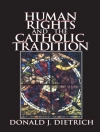The ancient Greeks experienced war in many forms. By land and by sea, they conducted raids, ambushes, battles and sieges; they embarked on campaigns of intimidation, conquest and annihilation; they fought against fellow Greeks and non-Greeks.
Drawing on a wealth of literary, epigraphic and archaeological material, this wide-ranging synthesis looks at the practicalities of Greek warfare and its wider social ramifications. Alongside discussions of the nature and role of battle, logistics, strategy, and equipment are examinations of other fundamentals of war: religious and economic factors, militarism and martial values, and the relationships between the individual and the community, before, during and after wars. The book takes account of the main developments of modern scholarship in the field and engages with the many theories and interpretations that have been advanced in recent years, in a way that is stimulating and accessible to both specialist readers and a wider audience.
Inhaltsverzeichnis
Acknowledgements
Abbreviations
Introduction
War and Peace in Ancient Greece
Early Greek Warfare
The Makers of War
The Patterns of War
Battlefield Engagements in the Age of the Hoplite
Naval Warfare
Siege Warfare
War and Economy
War and Religion
War, the Individual and the Community
Conclusion
Bibliography
Über den Autor
Louis Rawlings is Lecturer in Ancient History at the University of Cardiff












